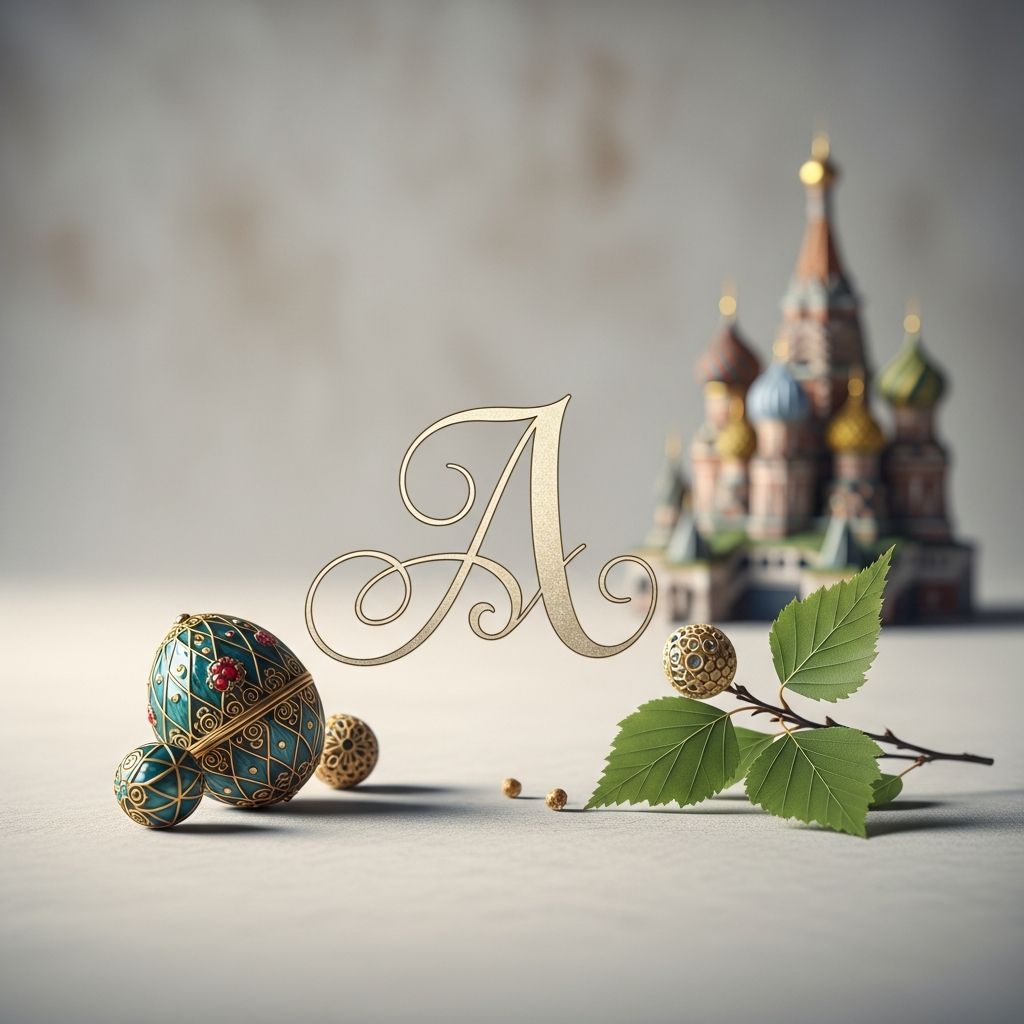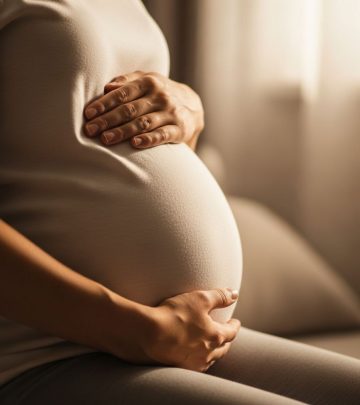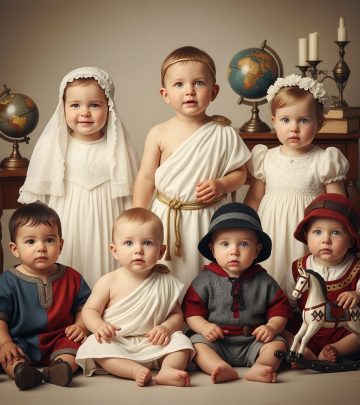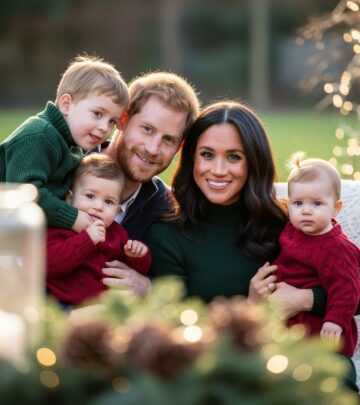Russian Baby Names Starting with ‘A’: Origins, Meanings, and Insights
Explore the richness of Russian baby names that begin with 'A', uncover their origins, meanings, and unique cultural touches.

Russian Baby Names That Start with ‘A’
Russian names hold a distinctive charm, often carrying rich meanings, intricate diminutives, and centuries of tradition. Names beginning with the letter ‘A’ occupy a prominent place in Russian culture, gracing countless boys and girls with history, beauty, and strength. This guide explores a broad selection of Russian baby names starting with ‘A’, delves into their etymology, variations, and cultural notes, and offers inspiration for anyone fascinated by Slavic heritage.
A Cultural Overview of Russian Names
Russian names typically consist of a given name, a patronymic (derived from the father’s first name), and a family surname. The given name is of great importance and is often chosen for its meaning, euphony, and family significance. Russian given names (imena) frequently feature:
- Diminutives: Familiar or affectionate short forms, used commonly among friends and family.
- Tender Forms: Even softer, cutesy versions, used for children or endearment.
- Origins: Names often originate from Greek, Hebrew, Roman, or Slavic roots.
- Meanings: Many names carry powerful meanings like “grace,” “defender,” or “resurrection.”
Russian Girl Names Starting with A
The following table highlights popular and traditional Russian girl names starting with ‘A’, along with their short forms, tender versions, and meanings.
| Name | Diminutive | Tender Name | Meaning / Origin |
|---|---|---|---|
| Aglaya | Aglaya | Aglaechka | Brilliant, beautiful (Greek) |
| Agnes | Agnes | Agnesochka | Holy (Greek) |
| Alexandra | Sasha, Shura | Sashenka, Shurochka | Defender (Greek) |
| Alina | Alina | Alinochka | Alien, strange (Latin) |
| Alisa | Alisa | Alisochka | From Old German: “baby” |
| Alla | Alla | Alochka | From German origins |
| Anastasya | Nastya | Nastenka | Reviviscence, resurrection (Greek) |
| Anna | Anya | Anushka, Anechka, Anichka | Grace of God (Hebrew) |
| Antonina | Tonya | Tonechka | Go into action (Greek) |
| Anzhela | Anzhela | Anzhelochka | Angel (Greek/Latin) |
Other Notable Girl Names Starting with ‘A’
- Adriana: Derived from Latin; associated with the Adriatic Sea.
- Alena: Variant of Helen, meaning ‘shining light’.
- Alevtina: Of Greek origin; used in Slavic tradition.
- Alma: Meaning ‘caring’ or ‘soul’.
- Alya: Meaning ‘sky’ or ‘loftiness’ (Arabic root frequently adopted in Russian).
- Alyona: Russian form of Helen.
- Anastasia: A perennial favorite meaning ‘resurrection’. The diminutive forms include Nastya and Nastenka.
- Angelina: Meaning ‘angelic’ or ‘messenger of God’.
- Ania: A variant of Anna, often interpreted as ‘gracious’ or ‘merciful’.
- Anika: Gracious, merciful, or sweet-faced.
- Antonina: Consistent with Greek tradition, meaning ‘priceless’ or ‘invaluable’.
- Arina: A variant of Irene, meaning ‘peace’.
- Alsu: Meaning ‘innocent’.
- Avdotya: Traditional Russian, meaning ‘servant of God’.
- Aurora: Meaning ‘dawn’.
- Avgusta: Female form of Augustus, meaning ‘majestic’.
Popular Girl Names: Meanings and Notes
| Name | Meaning | Notes |
|---|---|---|
| Ada | Graceful and noble; pure; noble | Timeless, short, and elegant |
| Alma | Soul, caring | Latin roots, popular in many cultures |
| Ani | Ornament, beautiful | Variant of Anna |
| Any | Variant of Anny | Compact and cheerful |
| Anai | God has shown; God was gracious | Modern forms gaining popularity |
| Anel | Angel; messenger of God | Evocative and soft |
| Avy | Blessed; beginning | Symbolic for new life |
Russian Boy Names Starting with A
Traditional Russian boy names are strong, often formal, with historical and spiritual significance. Below are recurring and remarkable boy names that begin with ‘A’, along with their meanings:
| Name | Meaning | Notes / Origin |
|---|---|---|
| Abai | The Nile River | Rare outside Russia |
| Abas | Lion | Symbolizes courage |
| Abid | Worshipper of Allah; spark | More common in Muslim Russian communities |
| Adyl | Honest; just | Desirable moral quality |
| Agis | Add meaning | Ancient roots |
| Akim | God will establish | Biblical resonance |
| Akyl | Thoughtful; wise; intelligent | Praised in Russian literature |
| Alek | Form of Alexander; helper | One of the most traditional Russian male names |
| Ambr | Sky | Evocative and rare |
| Amyr | Commander; prince; emir; ruler | Strong, leadership associations |
| Anri | Add meaning | French origin; used in Russia |
| Ants | Add meaning | Rare |
| Arsi | Mirror | Symbolic; reflects intellect |
| Asan | Vault; easy; name of Lord Shiva | Diverse meanings – spiritual and practical |
| Ata | Gift; one of twins | Common in Turkic-speaking parts of Russia |
Other Notable Boy Names Beginning with ‘A’
- Alexander (Aleksey, Aleksandr): Derived from Greek, meaning ‘protector of men.’ One of the most common names in Russian history.
- Andrei: Russian version of Andrew, meaning ‘manly’ or ‘brave.’
- Anton: Derived from Antonius, meaning ‘priceless’ or ‘of inestimable worth.’
- Anatoliy: Of Greek origin, meaning ‘from the east’ or ‘sunrise.’
- Anisim: Meaning ‘accomplishment’ or ‘fulfillment’—rare, but traditional.
- Anatoly: Related to Anatoliy; both names are deeply respected among Russian Orthodox Christians.
Russian Naming Traditions
Choosing a name in Russian culture is a thoughtful process. Parents often select a name based on one or more of the following criteria:
- Traditional family names that are passed down generations
- Religious significance: Many names are chosen from the Orthodox Christian calendar, honoring saints
- Symbolism and meaning: Names are selected for the characteristics or traits they denote, such as strength, wisdom, or kindness
- Popularity: Some names gain status due to famous literary characters, historical figures, or cultural icons
Frequently Asked Questions (FAQs)
Q: What are the most popular Russian baby names starting with A?
A: For girls, Anastasia, Anna, Alina, and Alexandra are extremely popular, while Alexander, Andrei, and Anton are favorites among boys.
Q: Do Russian baby names have special short forms or nicknames?
A: Yes, Russian names commonly have diminutives (shortened, affectionate forms) used among friends and family. For instance, Anastasia becomes Nastya, Alexandra turns into Sasha, and Alexander can be Sasha or Shura.
Q: How do Russian parents typically choose a baby’s name?
A: Parents often consider the name’s meaning, family heritage, religious significance, and how the name sounds with the patronymic and surname. Many also honor ancestors or saints from the Orthodox Church calendar.
Q: Are Russian names influenced by other cultures?
A: Absolutely. Many Russian names have Greek (Alexandra, Anastasia), Hebrew (Anna), Latin (Alina, Alma), or Germanic roots (Alisa, Alla), and reflect Russia’s multicultural history.
Q: Why do some names have multiple spellings or forms?
A: Names are adapted to different languages and alphabets, resulting in various transliterations and diminutives. For example, Anya (Russian), Anja (German), Ania or Any (variants), but all relate to Anna.
Tips for Choosing the Perfect Russian Name
- Consider how the name will sound in your native language and culture.
- Decide if you want a classic, modern, or unique name.
- Explore the meaning—many Russian names have inspiring or poetic origins.
- Think about possible nicknames and how they might be used.
- Check if the name honors your family’s heritage, background, or a beloved ancestor.
- For multicultural families, look for names like Anna, Anastasia, or Alexander that have global recognition as well as Russian roots.
Conclusion
Russian baby names starting with ‘A’ offer a window into a world of history, culture, strength, and beauty. Whether you’re drawn to the grace of Anastasia, the strength of Alexander, the elegance of Anya, or the rare poetry of Aurelina or Aglaia, each name carries a unique story and enduring spirit. Explore further to find the perfect name for your child or simply to appreciate the diversity and richness of Russian naming traditions!












